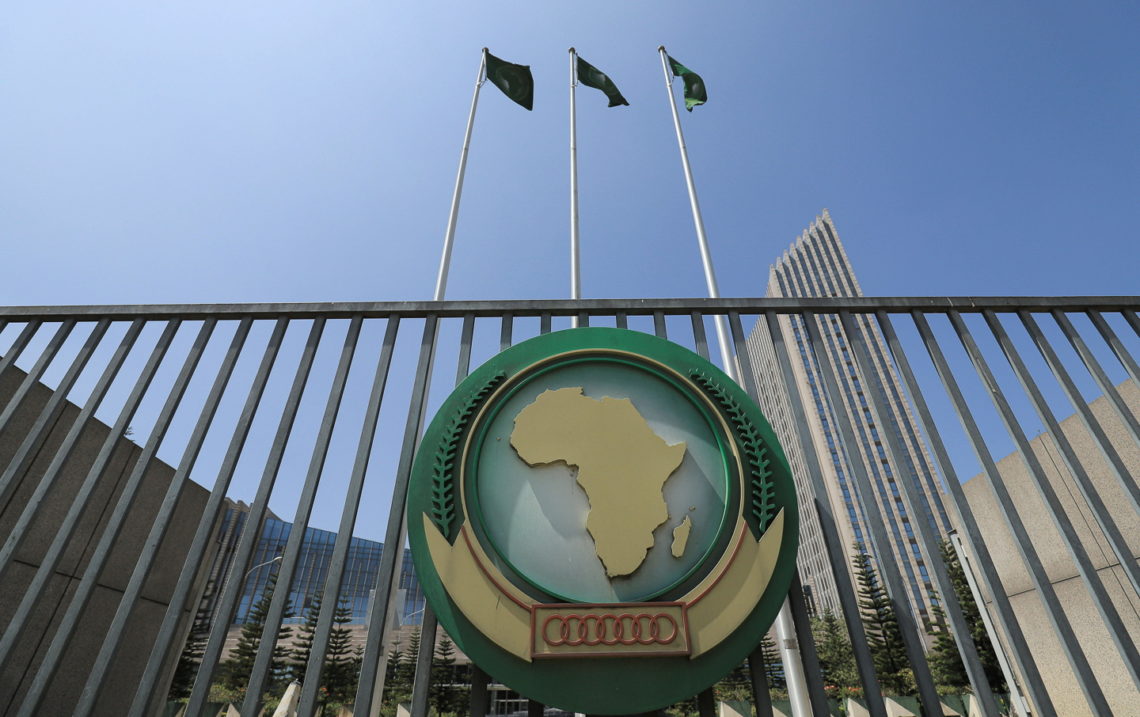African Telecommunications Union (ATU) a specialised agency of the African Union in the field of telecommunications, has called for harmonised action by telecommunications regulators and operators in Africa to combat the coronavirus pandemic.
The ATU put together a set of guidelines to assist in combating the Coronavirus disease (COVID-19) pandemic, urging every member state to consider among other things, the implementation of a Common Alerting Protocol (CAP) that would enable authorities effectively prevent and mitigate the spread of Covid-19.
There are now more than 1,400 confirmed cases of coronavirus across the continent, with a number of African countries imposing a range of prevention and containment measures against the spread of the pandemic.
According to the latest data, of the WHO on COVID-19 in Africa, the breakdown remains fluid as countries confirm cases as and when. The whole of Africa has rising cases with a sizeable number of countries holding out.
However, Heads of States and Governments across the continent are taking no chances as they race to stop the spread of the virus by sensitizing their citizens about the pandemic and the various ways to combat the disease.
Globally, telecoms/ICTs have become a pillar in the prevention, preparedness and response to the Covid-19 pandemic.
The ATU, through the Secretary-General, Mr John Omo, is urging the Ministries of ICT, through the telecommunications regulators and operators in the Member States, to consider implementing the following recommendations/guidelines to fight COVID-19 pandemic:
Activation of the Common Alerting Protocol (CAP) – Regulators should implement the Common Alerting Protocol (CAP) to enable authorities to effectively prevent and mitigate the spread of Covid-19. The CAP involves the use of multiple modes of communication to educate Members of the public including vulnerable groups about the disease as well as the preventive measures. The CAP will make it possible for members of the public to receive CAP-originated information in many ways, such as through mobile and landline telephones, Internet (e-mail, Google, Facebook, Twitter, WhatsApp, smartphone apps, online advertising, Internet of Things (IoT) devices, in-home smart speakers, etc.), sirens (in-building or outdoor), broadcast radio and television, cable television, emergency radio, amateur radio, satellite direct broadcast, and digital signage networks (highway signs, billboards, automobile and rail traffic control), among others.
Collaborative Practical Measures Regulators should adopt the following: Network Capacity – Fixed and mobile telephony providers should reserve some dedicated network capacity which should be made available free of charge to the authorities handling Covid-19.
Emergency Numbers – Fixed and mobile telephony providers should implement and enable the emergency numbers, for example 119, for voice messaging and promote short message service (SMS) as an alternative to telephony communications during this period. Emergency agencies – such as police, ministries of health and hospitals should adequately size their network capacity, e.g. lines and access trunks, to offer an efficient service when call demand is high. Also, telecommunication providers and amateur radio operators need to perform periodic emergency drills together. The public should adequately be informed of the availability of the service free of charge.
Guidelines for action during emergencies – Calls to emergency numbers should be free. Local and long-distance backbone providers must have redundancy networks to handle traffic from other providers that experience difficulties. Broadcasters should support communication and messaging strategies to the public in coordination with all the other agencies that are involved.
Amateur radio operators and simplification of type-approval processes – Radio amateurs are community based and should be involved in the information dissemination mitigation processes for Covid-19. Any type-approval acceptance could be waived during the period of emergency for equipment to be used by amateur radio operators or those processes simplified in order to gain time, for example, not subjecting such equipment to taxation at all. Regulatory authorities should recognize foreign type approvals to expedite the process and rely on the guidelines of the ITU Telecommunication Standardization Sector (ITU-T).
The ATU also called for Streamlined Regulation Processes, stressing that rapid response in the wake of a disaster was critical.
“Consequently, regulators should streamline the process to allow telecom/ICT services to be available as soon as possible. The following strategies should be considered by regulators:
“Telecom/ICT services licensing – As the continents fight the Covid-19 pandemic, the telecom/ICT regulatory authority should urgently grant telecom/ICT service licenses necessary to support emergency telecom/ICT efforts. Therefore, exceptional expedited licensing procedures should be in place, free of charge, for use. These licenses should be temporary and valid only during this period of emergency response and recovery until the government has determined that there is no further need for the service being provided.
“Frequency allocation – Frequency planning and allocation are critical at this time for mitigation, preparedness, response and recovery. Governments should make the necessary spectrum available on a national basis to allow for multiple types of applications and services, from narrowband voice services up to broadband-intensive applications. A combination of spectrum bands should be available free of charge for emergency communications, allowing both terrestrial and satellite systems to be quickly deployed with limited interference.
“Priority call routing – During such times, networks could fail to provide service for different reasons, one of them being overload thus delaying or altogether preventing critical communication. Regulators should establish priority call routing on both mobile and fixed networks for people engaged in Covid-19 response as well as other entities and institutions involved in such activities.
“Network redundancy – Network redundancy is a critical element of a robust network that will minimize telecom/ICT outages during this period. Disaster networks need to consider redundancy and resilience in their design, as well as increase the number of terminals. Regulators need to ensure that telecom/ICT providers have networks with adequate redundancy and multiple connectivity options for the authorities involved in combating Covid-19,” the ATU said.
The ATU noted that major delays during the importation of telecom/ICT critical equipment have a negative impact on the response time to a disaster, and even impact the likely loss of lives.
“Delays can occur for several reasons, including duties or tariffs, restrictions based on local standards, extensive paperwork, disorganized processes, etc. Rules should be in place to expedite the importation process of critical telecom/ICT equipment that might be used for response and recovery: e.g. exemptions from duties and tariffs, clear expedited processes and streamlined paperwork. In addition, once the equipment needs to be returned to the place of origin, expedited processes should be in place to help streamline the return process,” ATU stated.
The ATU further called for coordinated efforts during this period and clearly defined functions for different government institutions, e.g. ministries of foreign affairs, ICT and communications, customs, regulatory agencies and first responders such as hospitals among others.
“Also, there should be a collaboration with the private sector, including telecom/ICT operators, private networks, and amateur radio among others to give support and insights to the government on the collection of data and dissemination of information to the public. Regulators should, therefore, carry out a set of activities and procedures to connect all actors in the ecosystem at the local, national and international levels and ensure effective flow of information as the continent fights Covid-19,” the Union urged.





